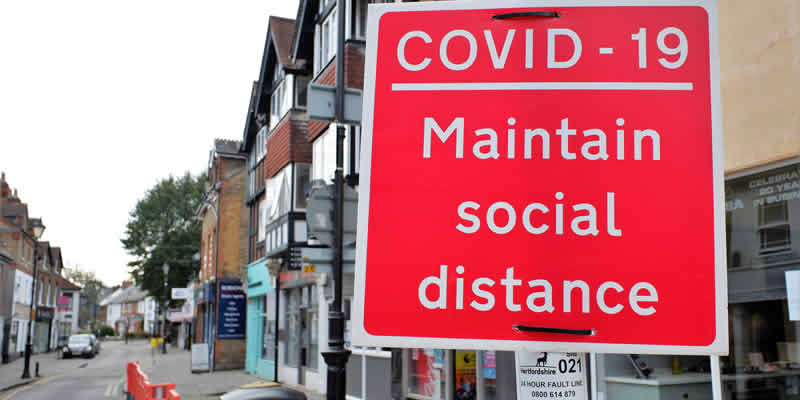The new variant of coronavirus that has been detected in the UK could be more deadly, Prime Minister Boris Johnson has warned.
However, the vaccines are still expected to work against the new strain that is spreading very quickly.
- PM says there is no doubt COVID vaccine targets will be met
- People prone to allergic reactions urged to avoid COVID vaccine
Speaking at a Downing Street briefing, Mr Johnson said: “In addition to spreading more quickly, it also now appears that there is some evidence that the new variant – the variant that was first identified in London and the south east – may be associated with a higher degree of mortality.
“It’s largely the impact of this new variant that means the NHS is under such intense pressure.”
Experts from Public Health England, Imperial College London, the London School of Hygiene and Tropical Medicine and the University of Exeter have been working round the clock to determine more information about the new strain.
- PM says there is no doubt COVID vaccine targets will be met
- People prone to allergic reactions urged to avoid COVID vaccine
Scientists from the New and Emerging Respiratory Virus Threats Advisory Group (Nervtag) have looked at the evidence that has bene gathered so far and concluded there was a “realistic possibility” that the virus has now become more deadly, but this is far from certain.
Sir Patrick Vallance, the government’s chief scientific adviser, said: “I want to stress that there’s a lot of uncertainty around these numbers and we need more work to get a precise handle on it, but it obviously is a concern that this has an increase in mortality as well as an increase in transmissibility.”
Meanwhile, other strains have been detected in South Africa and Brazil, which are causing more concern.
- Experts rally round to address COVID-19 vaccine safety
- How do I know if I have a cold, the flu or coronavirus?
Sir Patrick said: “They have certain features which means they might be less susceptible to vaccines.
“They are definitely of more concern than the one in the UK at the moment and we need to keep looking at it and studying this very carefully.”





